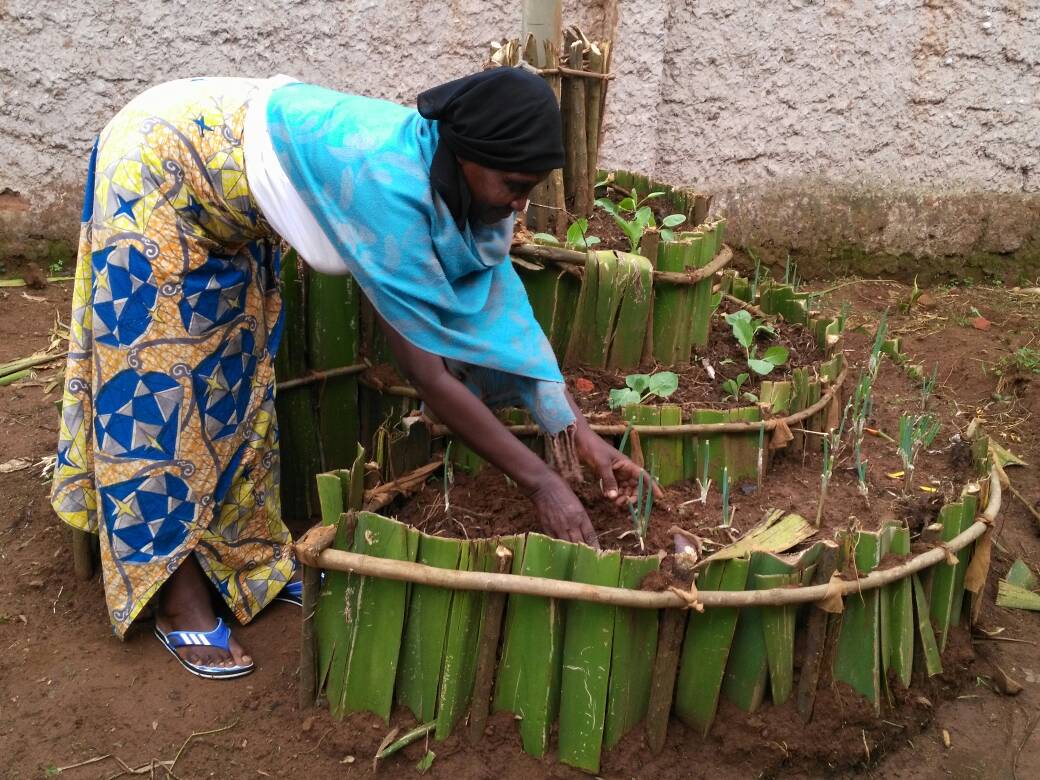USAID Support to Farmers in Bugesera Promotes Nutrition Sensitive Agriculture
Didacienne Mukandaruhutse, a farmer, widow, and mother of five, lives in a region of eastern Rwanda that faces constant drought. As a result, putting enough healthy, balanced, and diversified food on the table to ensure her children had the required nutrients for healthy growth was difficult, as was supporting her family to cultivate their small plot of land.
To help improve her family’s nutrition intake, Mukandaruhutse joined together with other farmers in Bugesera district, Rukumberi sector, to attend trainings on good agriculture practices organized by the Feed the Future Rwanda Hinga Weze activity, which aims to sustainably improve agricultural productivity, increase smallholder farmers’ income, and improve the nutritional status of Rwandan women and children.
The practical trainings focused on helping farmers acquire skills to implement nutrition-sensitive agriculture initiatives that build resilience to the harsh effects of climate change.
“Acquiring knowledge by practice about maternal infant and young child nutrition was a life-changing and eye-opening experience for me, my community, and even my children. We now know that it is possible to ensure proper nutrition for a smallholder farmer with limited production,’’ said Mukandaruhutse.
In the past, when Mukandaruhutse needed nutritious vegetables, she would buy them from the market, not knowing they could easily be produced in her own garden. “Establishing a home garden was simple because the community trainers who supported us offered practical skills so that we could learn by doing,” she said.
Hinga Weze operates its nutrition-sensitive agriculture activities in ten districts, training farmers in essential nutrition concepts, maternal feeding practices, optimal complementary feeding practices, cooking practices, and the establishment of kitchen or home gardens to diversify diets at the household level. Trainings also introduced basic budgeting principles to increase household savings for the purchase and consumption of nutritious foods.
Hinga Weze aims to reach a 40% increase in the percentage of children six to 23 months receiving a minimum acceptable diet and a 40% increase in the prevalence of women of reproductive age (15-49) consuming targeted nutrient-rich value chain crops.
In the first three months of their nutrition activities, Hinga Weze trained 17,912 households on nutrition-sensitive agriculture through Farmer Field Schools and community Farmer Promoters. In addition, 1,484 home gardens were established, and Hinga Weze distributed fruit and vegetable seeds (watermelon, carrots, beetroots, red and yellow onions, cabbages, amaranths, and spinach) to 200 farmers, including Mukandaruhutse, as part of their support to households.
“I look forward to saving the money which I used to spend on vegetables for my family, as well as meeting our family’s dietary requirements from my home garden, which I planted after acquiring knowledge on proper nutrition,” she said.



